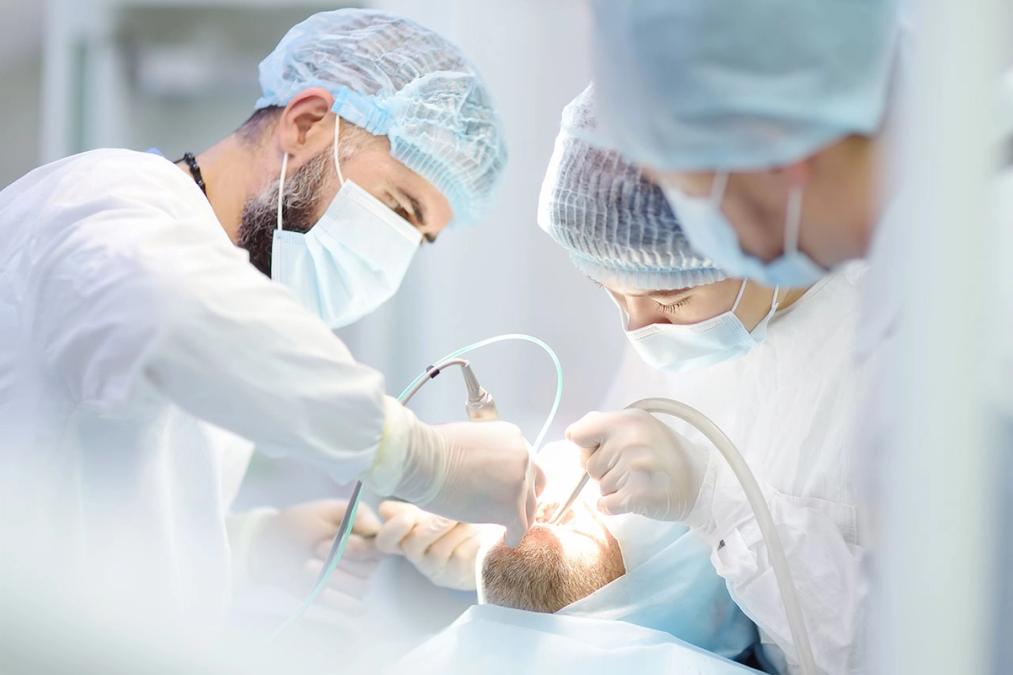920 S. Hover St. Longmont CO 80501
Published on May 1, 2025 | 7 minute read

Have you ever woken up in the middle of the night with a throbbing toothache that made it impossible to sleep? Or perhaps you've been enjoying a crunchy snack when suddenly you hear a crack and feel a piece of your tooth break off? Dental emergencies can happen to anyone, at any time, often when we least expect them. Knowing what constitutes a true dental emergency—and what can wait for a regular appointment—can save you unnecessary pain, prevent further complications, and potentially even save your tooth. But where exactly is that line between "I should call right now" and "this can wait until Monday"?
Dental emergencies are situations that require immediate attention to alleviate severe pain, stop bleeding, or save a tooth. Not every dental issue demands urgent care, but certain symptoms and situations should never be ignored.
True dental emergencies typically include:
When faced with a dental emergency, knowing how to respond in the crucial moments before reaching professional help can make a significant difference in the outcome.
If your tooth gets knocked out, time is of the essence. Pick up the tooth by the crown (the part visible in the mouth), not the root. Gently rinse it with water if it's dirty, but don't scrub it or remove any attached tissue fragments. If possible, try to reinsert the tooth into its socket. If that's not possible, place it in a container of milk, saline solution, or under your tongue to keep it moist. Then call Artistic Smiles at 303-485-8888 immediately. Remember, a knocked-out tooth has the best chance of being saved if it receives dental care within 30-60 minutes.
For a severe toothache, rinse your mouth with warm water and use dental floss to remove any food particles between teeth. If swelling is present, apply a cold compress to the outside of your cheek. Never place aspirin directly on the aching tooth or gum tissues as it can burn the gum tissue. Take over-the-counter pain relievers according to package directions, but understand that these are temporary measures—not solutions to the underlying problem.
If you crack or break a tooth, immediately rinse your mouth with warm water to clean the area. Apply a cold compress to the face to reduce swelling. If the broken piece is available, wrap it in wet gauze or a towel and bring it with you to your emergency appointment.
While some dental issues require immediate attention, others can wait for a regular appointment. Understanding the difference can save you time, money, and unnecessary stress.
The following situations, while uncomfortable, are typically not emergencies:
If you're experiencing any of these issues, it's still important to schedule a dental appointment soon, but you likely don't need emergency care.
Many dental emergencies can actually be prevented through regular dental care. According to the American Dental Association, routine dental visits allow for early detection of issues that could later develop into emergencies.
Professional studies have consistently shown that patients who maintain regular six-month dental check-ups experience:
A study in the Journal of Dental Research found that preventive dental visits reduced the likelihood of needing emergency dental treatment by up to 40%. Regular maintenance allows your dentist to monitor your oral health and address small issues before they escalate into emergencies requiring urgent care.
While we can't always prevent dental emergencies, we can be prepared for them. Consider creating a dental emergency kit that includes:
Being prepared can help you respond quickly and effectively when dental emergencies occur, potentially saving a tooth or preventing further complications.
Dental emergencies don't follow a convenient schedule. They can happen during holidays, weekends, or the middle of the night. That's why it's important to know where to turn when urgent dental care is needed.
At Artistic Smiles in Longmont, Colorado, we understand that dental emergencies require prompt attention. If you're experiencing a dental emergency, call our office at 303-485-8888 right away. Our team is committed to providing timely care to address your urgent dental needs.
Dental emergencies can be stressful and frightening, but knowing what constitutes an emergency and how to respond can make all the difference. Remember, prompt professional care is key to resolving dental emergencies and preventing long-term complications. When in doubt about whether your situation is an emergency, it's always better to call and ask rather than delay potentially necessary treatment.
Your smile is too important to risk—when emergency strikes, don't wait. Reach out to dental professionals who can guide you through the crisis and restore your oral health. Your future self (and your teeth) will thank you.
Experience the Artistic Smiles difference. Contact us now to book your appointment with Dr. Trey Thygerson, your expert dentist in Longmont, CO. Let us help you achieve the healthy, beautiful smile you deserve. Your trusted dental home in Longmont since 1998. Dr. Trey Thygerson and our compassionate team deliver exceptional care with a personal touch.